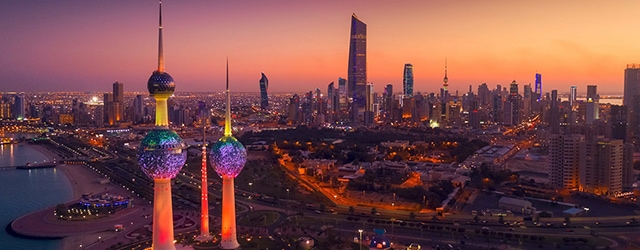Kuwait gets an upgrade.

Oil-rich Kuwait will no longer be a frontier market for global investors as of next June, when the world’s leading index provider plans to upgrade its MSCI Kuwait Index to emerging market status. The decision has the potential to attract billions of dollars of investor inflows to the Middle Eastern nation’s stock market. Anticipation of the move has already helped make the Boursa Kuwait the best-performing stock exchange in the region so far this year, with a gain of about 20%.
Regulatory and operational enhancements have made the market more accessible to international investors, says Sebastien Lieblich, global head of equity solutions at MSCI and chair of the firm’s equity index committee. The upgrade to emerging market status is conditional on further enhancements, including omnibus account structures that would allow foreign investors to remain anonymous when trading, a privilege local investors already enjoy.
“We welcome the [Kuwait] Capital Markets Authority’s public commitment to deliver these market features by November 2019,” Lieblich says, as quoted in an MSCI press release. “We will closely monitor their implementation before making the final decision” on designation by the end of this year.
The upgrade would add nine Kuwaiti blue chips, primarily banks, to MSCI’s emerging markets benchmark. NBK Capital estimates that the decision could attract an additional $2.8 billion in passive investment flows, boosting liquidity in the Kuwaiti market. Franklin Templeton says the move could attract overall investor flows of as much as $10 billion.
Kuwait’s significant reserves, low debt and stable banking sector are strong attractions. But the country must compete with neighboring Saudi Arabia, which joined the MSCI Emerging Market index earlier this year; the United Arab Emirates; and Qatar, which gained EM status in 2013.
In a separate development, MSCI sent out a proposal on June 25 to investors over possible inclusion of Iceland in its frontier-market benchmarks next year. Iceland’s central bank has gradually removed the vast majority of capital controls introduced during the financial crisis in 2008, although restrictions remain on derivatives trading for nonhedging purposes, MSCI noted.



